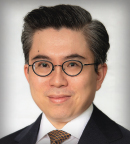Invited discussant of the IMbrave050 trial, Stephen Lam Chan, MD, of Chinese University of Hong Kong, put the study into context. “After curative treatment, recurrence remains a big problem [in patients with hepatocellular carcinoma at high risk of disease recurrence following resection or ablation]. Up to 50% of patients will recur within 2 years, and another 15% will recur later,” he said.

Stephen Lam Chan, MD
Over the past 30 years, none of the adjuvant anticancer strategies studied has proved to be effective for high-risk hepatocellular carcinoma. This includes modalities such as radiation therapy, transarterial chemoembolization, sorafenib, and interferon. The IBRAVE clinical trial has excluded patients with very high risk of recurrence (eg, macroscopic vascular invasion) and also excluded patients with low risk of recurrence (eg, single small hepatocellular carcinoma). As a result, the study has recruited patients with recurrence-free survival of 65%, which is similar to the intermediate-risk group.1
Change in Biology of the Disease?
Dr. Chan acknowledged there was an early separation of the recurrence-free survival curves in the study. This upgraded some patients from medium risk to low risk, but he questioned whether this changed the biology of the disease completely.
“After 2 years, the treatment arm reverts to intermediate risk. If the biology of the disease was changed, the curves should continue to separate, but they did not in this trial. We may just have delayed recurrence. We need more data on relapse-free survival,” he continued. “It will be important to follow survival, and we need more details about severe toxicity. There were two deaths related to atezolizumab, and 19% withdrew from the combination therapy arm because of side effects. Some patients have severe effects from bevacizumab toxicity. The authors are encouraged to look at the timing and predisposition for fatal adverse events. In future analysis, it will be important to look at dose intensity and duration of both drugs, especially bevacizumab.”
DISCLOSURE: Dr. Chan reported financial relationships with AstraZeneca, MSD, Ipsen, Roche, Eisai.
REFERENCE
1. Chan AW, Zhong J, Berhane S, et al: Development of pre and post-operative models to predict early recurrence of hepatocellular carcinoma after surgical resection. J Hepatol 69:1284-1293, 2018.

